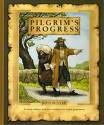 What a treasure I found: "History of Journalism" with the option to click on the 20th century decades. The decade of 1900 is worth it all, with wonderful biographical references to Ida Tarbell (pictured on the left) and Nellie Bly, among others. If you love history or have any interest at all in the history of journalism, check it out. http://ehub.journalism.ku.edu/history/1900/1900.html
What a treasure I found: "History of Journalism" with the option to click on the 20th century decades. The decade of 1900 is worth it all, with wonderful biographical references to Ida Tarbell (pictured on the left) and Nellie Bly, among others. If you love history or have any interest at all in the history of journalism, check it out. http://ehub.journalism.ku.edu/history/1900/1900.htmlFrom that site, I went to the definition of muckraking. I had forgotten where that term came from. Test your own IQ on great English literature. I was reminded by Teddy Roosevelt. Here is a short portion of a speech he gave--well worth reading.
April 15, 1906
 Over a century ago Washington laid the corner stone of the Capitol in what was then little more than a tract of wooded wilderness here beside the Potomac. . . . The material problems that face us today are not such as they were in Washington's time, but the underlying facts of human nature are the same now as they were then. Under altered external form we war with the same tendencies toward evil that were evident in Washington's time, and are helped by the same tendencies for good. It is about some of these that I wish to say a word today.
Over a century ago Washington laid the corner stone of the Capitol in what was then little more than a tract of wooded wilderness here beside the Potomac. . . . The material problems that face us today are not such as they were in Washington's time, but the underlying facts of human nature are the same now as they were then. Under altered external form we war with the same tendencies toward evil that were evident in Washington's time, and are helped by the same tendencies for good. It is about some of these that I wish to say a word today.In Bunyan's Pilgrim's Progress you may recall the description of the Man with the Muck Rake, the man who could look no way but downward, with the muck rake in his hand; who was offered a celestial crown for his muck rake, but who would neither look up nor regard the crown he was offered, but continued to rake to himself the filth of the floor.
 In Pilgrim's Progress the Man with the Muck Rake is set forth as the example of him whose vision is fixed on carnal instead of spiritual things. Yet he also typifies the man who in this life consistently refuses to see aught that is lofty, and fixes his eyes with solemn intentness only on that which is vile and debasing.
In Pilgrim's Progress the Man with the Muck Rake is set forth as the example of him whose vision is fixed on carnal instead of spiritual things. Yet he also typifies the man who in this life consistently refuses to see aught that is lofty, and fixes his eyes with solemn intentness only on that which is vile and debasing.Now, it is very necessary that we should not flinch from seeing what is vile and debasing. There is filth on the floor, and it must be scraped up with the muck rake; and there are times and places where this service is the most needed of all the services that can be performed. But the man who never does anything else, who never thinks or speaks or writes, save of his feats with the muck rake, speedily becomes, not a help but one of the most potent forces for evil.
There are in the body politic, economic and social, many and grave evils, and there is urgent necessity for the sternest war upon them. There should be relentless exposure of and attack upon every evil man, whether politician or business man, every evil practice, whether in politics, business, or social life. I hail as a benefactor every writer or speaker, every man who, on the platform or in a book, magazine, or newspaper, with merciless severity makes such attack, provided always that he in his turn remembers that the attack is of use only if it is absolutely truthful.
The liar is no whit better than the thief, and if his mendacity takes the form of slander he may be worse than most thieves. It puts a premium upon knavery untruthfully to attack an honest man, or even with hysterical exaggeration to assail a bad man with untruth. . . . http://www.pbs.org/wgbh/amex/presidents/26_t_roosevelt/psources/ps_muckrake.html





